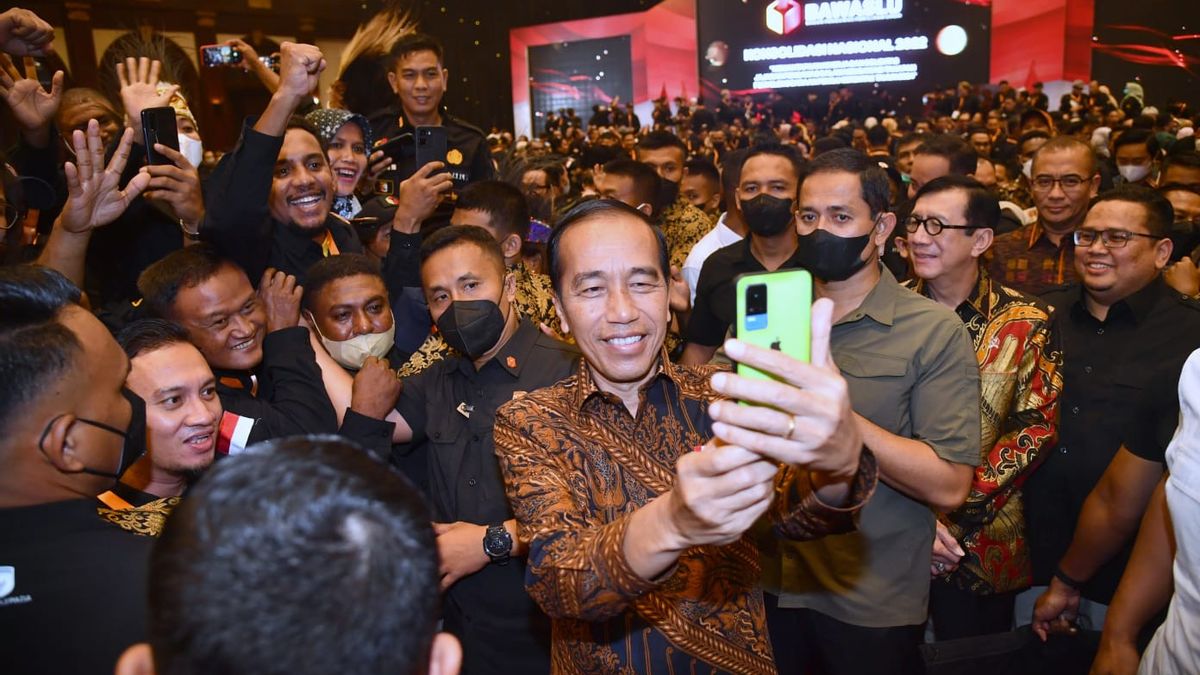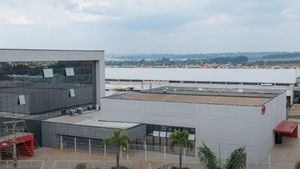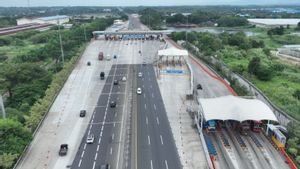JAKARTA - Like a football match, everyone will accept and recognize the results of the match if the process is carried out in a fair and integrity manner. Likewise, the General Election (Pemilu) is a democratic party. In the process, trust is key. The implementation of reliable elections will produce strong legitimacy.
President Joko Widodo (Jokowi) conveyed this when the National Consolidation of the Indonesian Election Supervisory Body (Bawaslu) at the Bidakara Hotel on 17 December. One issue that is often the subject of allegations of fraud is regarding the List of Permanent Voters (DPT).
"We are the weakest in terms of data, because our geography is very long," said Jokowi.
It is a tough job. Moreover, the 2024 General Elections and Pilkada are held simultaneously. This will be the biggest democratic party in the history of elections in Indonesia, and perhaps the largest in the world. However, Jokowi said, the quality of the election is an important political foundation in the state and government.
As a supervisor, the role of Bawaslu occupies a very central position. To maintain election integrity, supervision must be carried out at all stages of the election. The whole process must be monitored very carefully, handled very carefully, to realize quality elections," he explained.
"If there is something hindering it, especially from the government that is not cooperative, then Pak Rahmat Bagja (Chairman of Bawaslu) will report it to me, because the DPT affairs are very crucial," Jokowi added.
It's clear, Bawaslu is able to ensure that the election process takes place freely and confidentially, and is honest and fair.
The problem in the election, according to M. Afifuddin in his book "Earning Election Supervision", is not only a process of voting or political contestation in a voter, but also related to the overall process of democratic institutions.
If you look at the 2019 Election Insecurity Index (IKP), in addition to the preparation of the DPT, there are a number of other problems that need to be observed, such as public preparation of hoaxes, identity politics, problems of political party regeneration, acceleration of development, struggle for access to natural resources, and law enforcement.
In fact, Afifuddin gave additional notes as a reflection of the previous election process, particularly related to the registration of election monitoring. First, Bawaslu cannot carry out a lot of verification and validation processes directly to the field to check the correctness of the file submitted by the Election monitoring agency.
In addition, there are many election monitors who submit registration documents for election monitoring at the moment before voting day. Finally, what was researched were the administrative files that were deposited by the monitoring registrant," he said.
Second, related to the quality of monitoring carried out by the 2019 election monitoring. This, according to Afifuddin, is very important.
"Sponding it requires further research and data excavation, because measurements related to quality certainly require details concerning processes that occur in the field," he continued.
Most of the 2019 election monitors carried out a monitoring process on voting day. There are also those who monitor specific issues, such as campaign funds, the full rights of persons with disabilities in the election, the full rights of indigenous peoples in the election, to the neutrality of ASN.
However, in reality, not many election monitors made reports to Bawaslu at the end of the election stage.
So, he also assessed that election monitoring would be much better if it was carried out at every stage or not only at the voting stage.
"The existence of election monitoring in Indonesia is still very much needed to maintain and encourage the election process to run honestly and fairly so as to produce good leaders," said Afifuddin.
Indeed, there is already an election supervisor, but democracy requires the existence of community forces that play a role in the political process, especially the election. In theory, the more concerned and the stronger the civil society in guarding the election, the more democratic the election will be.
"On the other hand, if the country is too strong and civil society is very weak, the elections in a country will be less democratic," he added.
The results of the 2024 IKP report submitted by Bawaslu on December 16 also show problems that are not much different. The issue of neutrality of election organizers, polarization in society, and political dynamics in cyberspace is still a major issue.
That, according to Bawaslu member Lolly Suhenty, is an important experience that tests professionalism. So, there needs to be special efforts to overcome it.
"Including the dynamics of social media. There needs to be mitigation efforts due to the use of social media," said the woman who also serves as the Coordinator of the Bawaslu Community Prevention, Supervision and Participation Division in the launch of the 2024 Simultaneous Elections and Elections IKP on December 16, as reported from the official Bawaslu website.
Another strategic issue of concern is the implementation of the stages of elections in four new provinces in Papua, namely Central Papua, South Papua, Papua Mountains, and Southwest Papua. Also, the fulfillment of the right to vote and be elected must be guaranteed as the constitutional right of citizens, especially for women and vulnerable groups.
In addition to the issue, IKP 2024 also presented data on areas with vulnerable categories. The highest are DKI Jakarta, North Sulawesi, North Maluku, West Java, and East Kalimantan.
Prone categories are found in 21 provinces, including Banten, Lampung, Riau, Papua, and East Nusa Tenggara. The low-prone categories are found in 8 provinces, including North Kalimantan, Central Kalimantan, East Java, West Kalimantan, and Jambi.
"We hope that all regions remain conducive. There are no things that have the potential to disrupt or hinder the democratic election process," he added.
IKP is the basis for the prevention and supervision program of the stages of elections and elections. This is an effort by Bawaslu in projection and early detection of potential violations.
"For Bawaslu, IKP data is then used as a reference for the preparation of prevention and supervision programs which are then forwarded to each region," said Afifuddin in the book.
As for other stakeholders, IKP data can be used as a basis for preparedness to formulate actions that can be taken. The basis for carrying out sectoral work in each institution.
For example, the police and the TNI can monitor the vulnerability that arises from IKP mapping. Civil society, especially election monitoring, can carry out more specific monitoring and focus on problems that become vulnerabilities in each monitoring area. Likewise, academics and researchers can use IKP data as a reference for their research," wrote Afifuddin.
Meanwhile, for the KPU, the IKP database can be useful for anticipating potential errors, maladministration in the stages of implementing the election.
The English, Chinese, Japanese, Arabic, and French versions are automatically generated by the AI. So there may still be inaccuracies in translating, please always see Indonesian as our main language. (system supported by DigitalSiber.id)













